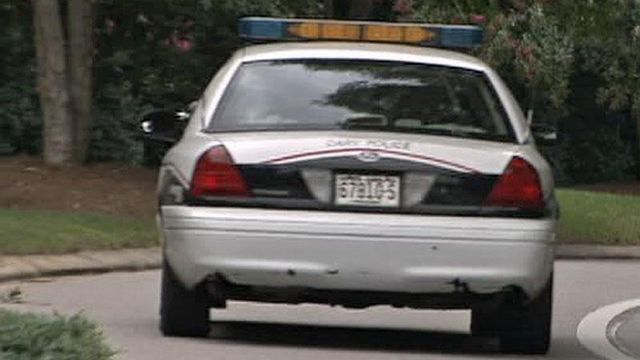Cooper: Violent crime down statewide, up in Triangle
Overall, reports of crime fell by 2.2 percent in 2008, Attorney General Roy Cooper said. The news was not so good for the populous communities of the Triangle, however. Police in Raleigh, Durham and Cary all reported more crime in 2008.
Posted — UpdatedCrime is down over the long-term, too, Cooper pointed out. Both property and violent crime rates are down nearly 14 percent compared to a decade ago. Crime has decreased even as the state’s population has grown by more than 20 percent.
The news was not so good for the populous communities of the Triangle, however. Police in Raleigh, Durham and Cary all reported more crime in 2008.
Raleigh saw the rate of both property and violent crimes rise in 2008 and had 11 more murders (34 versus 23 in 2007). In Durham, there were fewer murders in 2008 than in 2007 but more robberies and aggravated assaults.
In Cary, an overall 9 percent increase in crime could be largely attributed to a rise in property crimes. Both burglary and larceny were up. Cary police were not surprised by the numbers, saying that crimes of opportunity – thefts from unsecured garages and unlocked cars – made up the greatest portion of crime reports.
Martha Rippard's brother's locked car was broken into as it sat in her driveway during a party. "They stole money. They stole his camera and they stole a computer," she said.
Last month, the town launched a "geopolicing" effort in which commanders and patrol officers are assigned to one of three districts in order to "become experts on the needs, issues and concerns of the people within the specific areas they serve," the department Web site says. Chief of Police Barry Nickalson said, "We do work very hard with our citizens to keep Cary a safe place. We are a very safe community and we work hard to maintain that."
The North Carolina Department of Justice compiles crime statistics annually based upon data provided by local law enforcement agencies across the state.
Cooper called the trend "positive" but said the declines were not as significant as he would have liked. "No level of crime is acceptable, and we must be more innovative to make sure the rate continues to drop," he said.
He cited technological advances he believes will contribute continuing the downward trend.
As the database of reference samples grows, he said, more matches can be made and more innocent people exonerated. With more than 175,000 DNA profiles on file, the state made 221 matches in the past year, more than in the previous decade, Cooper said.
Cooper said he would ask the legislature next year to widen the net to allow DNA to be collected from anyone arrested for a felony or violent misdemeanors.
Cooper also mentioned a program that returns probation and parole records any time a law enforcement officer runs a driver's license check. The pilot program, launched last month in 60 counties, enables officers and court officials to check a person's criminal record and probation status at a glance and to see a driver's license photo to see if the person is using an assumed name.
NCAWARE was launched in June 2008 in Johnston County and has expanded to seven other counties – Wake, Harnett, Lee, Edgecombe, Nash, Wilson and Greene. Officials hope to have all counties using the system by 2010.
In addition to new technology, Cooper cited personal contact between law enforcement and the public in programs like the "Badges for Baseball," which pairs young athletes with law enforcement mentors and coaches.
"The very best way to fight crime is to prevent it from starting to begin with," he said.
• Credits
Copyright 2024 by Capitol Broadcasting Company. All rights reserved. This material may not be published, broadcast, rewritten or redistributed.





